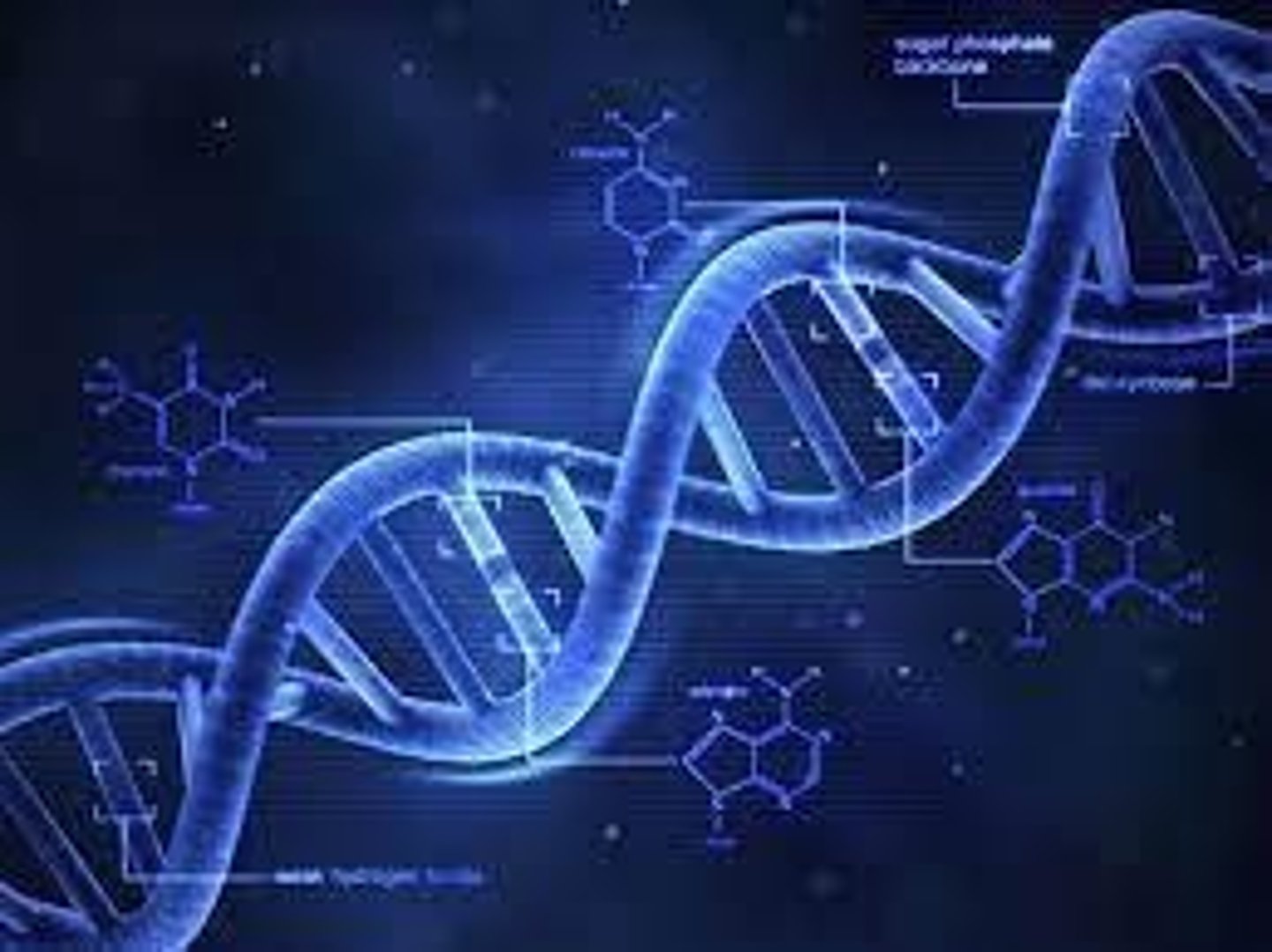Biology Organizing Concepts: Levels, Evolution, and Data Interpretation
1/42
There's no tags or description
Looks like no tags are added yet.
Name | Mastery | Learn | Test | Matching | Spaced | Call with Kai |
|---|
No analytics yet
Send a link to your students to track their progress
43 Terms
What is the first item on the agenda for the class on August 29, 2025?
Agenda, Check-in, Announcements and Reminders
What are the biological levels of organization from smallest to largest?
1. Molecules, 2. Organelles, 3. Cells, 4. Tissues, 5. Organs, 6. Organ systems, 7. Organisms, 8. Populations, 9. Communities, 10. Ecosystems, 11. Biosphere
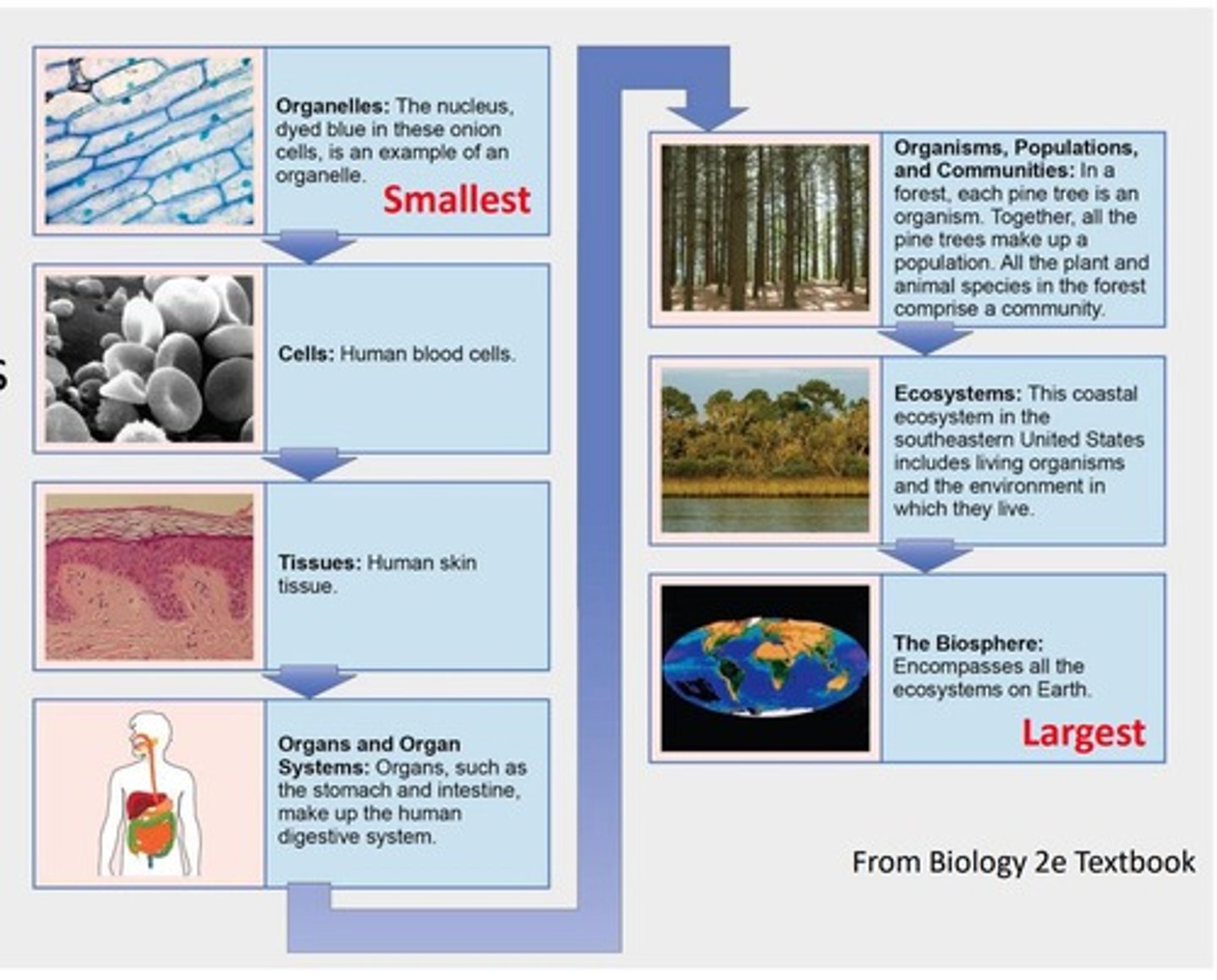
What is the purpose of the Biology Concept Map activity?
To connect BIO 012 Lecture Topics to the five Biology Core Concepts.
What are the five core concepts in biology according to the Vision and Change report?
1. Evolution, 2. Structure and Function, 3. Information Flow, Exchange, and Storage, 4. Energy and Matter, 5. Systems
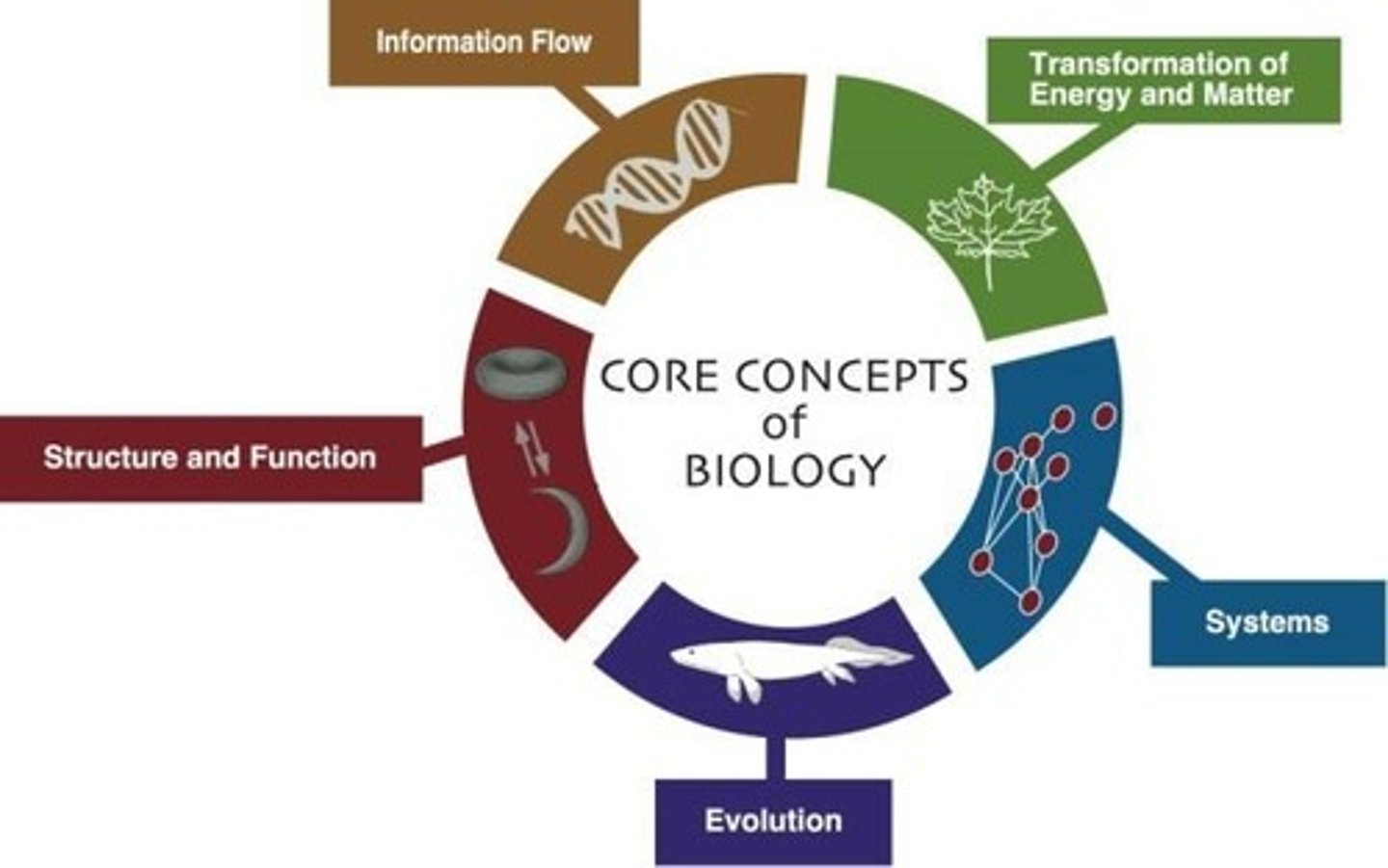
What should students do to prepare for the Biology Concept Map activity?
Draw a concept map of some of the Bio 12 course topics on the back of their paper.
What is one study habit students are encouraged to reflect on for the semester?
Identify one study habit from last semester to keep and one to change.
What is R0 in the context of disease spread?
R0 (R naught) is the average number of people who will contract a contagious disease from one infected individual.
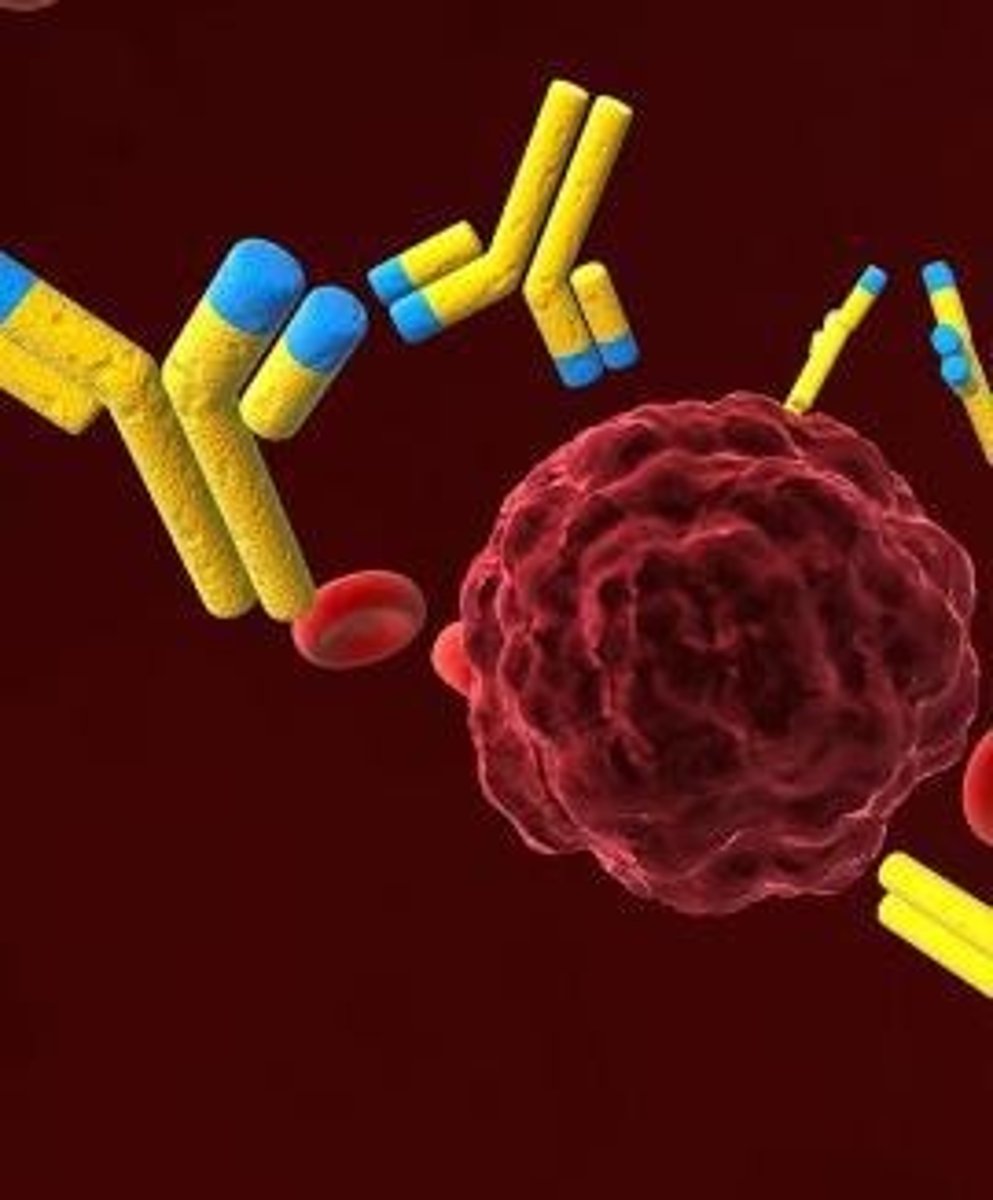
What is the due date for SmartBook #1?
Due today, with an extension to Wednesday, September 3.
What is the due date for Journal #1?
Due Wednesday, September 10 at 11:59 pm.
What should students do with their final exam and midterms by Friday's class?
Calendar the final exam and the three midterms.
What is the significance of organizing biology from big to little or little to big?
It helps in understanding the relationships and hierarchies within biological systems.
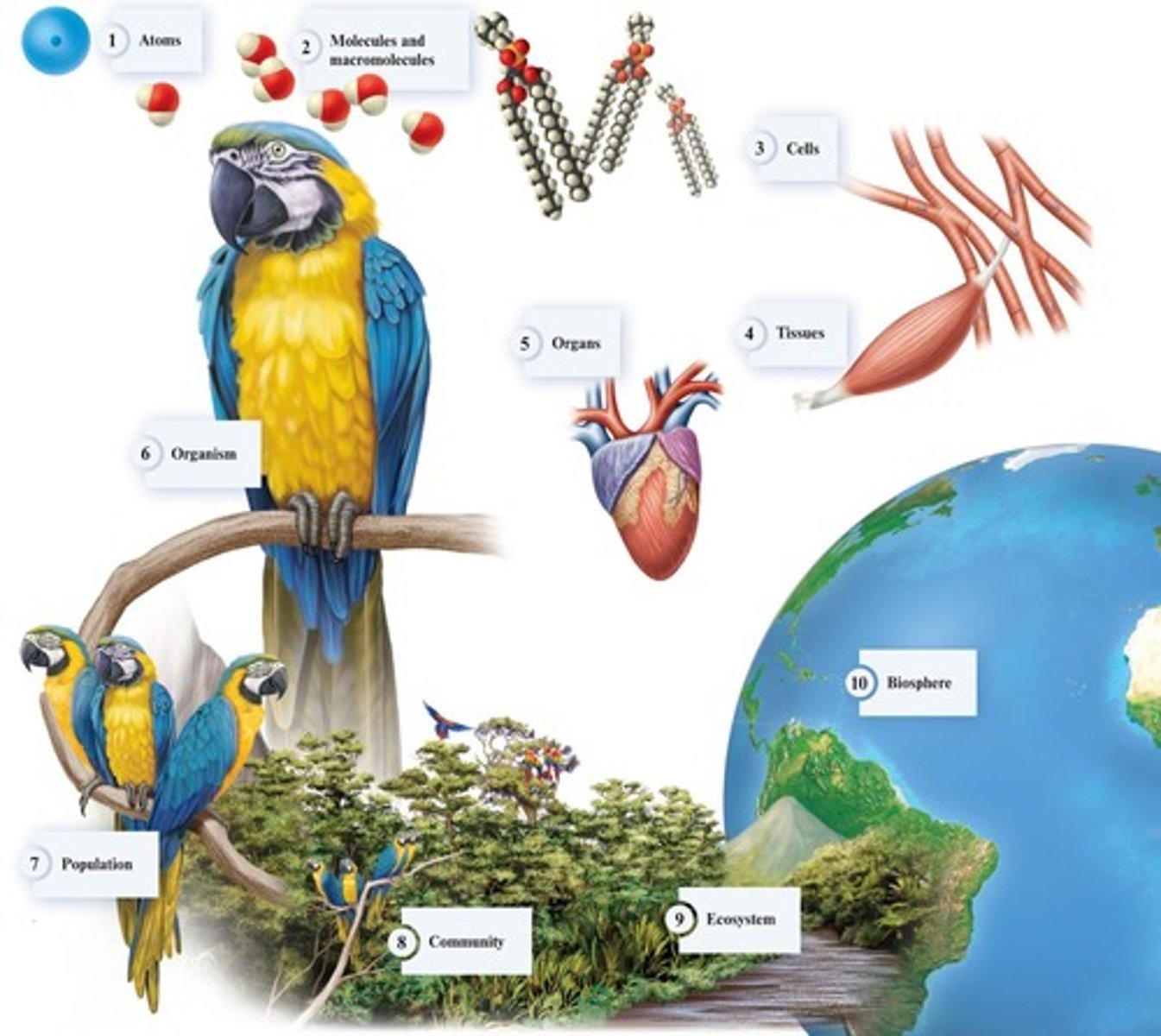
What is one way to organize data in biology?
Putting data into tables, graphs, and charts to make it easier to view and interpret.
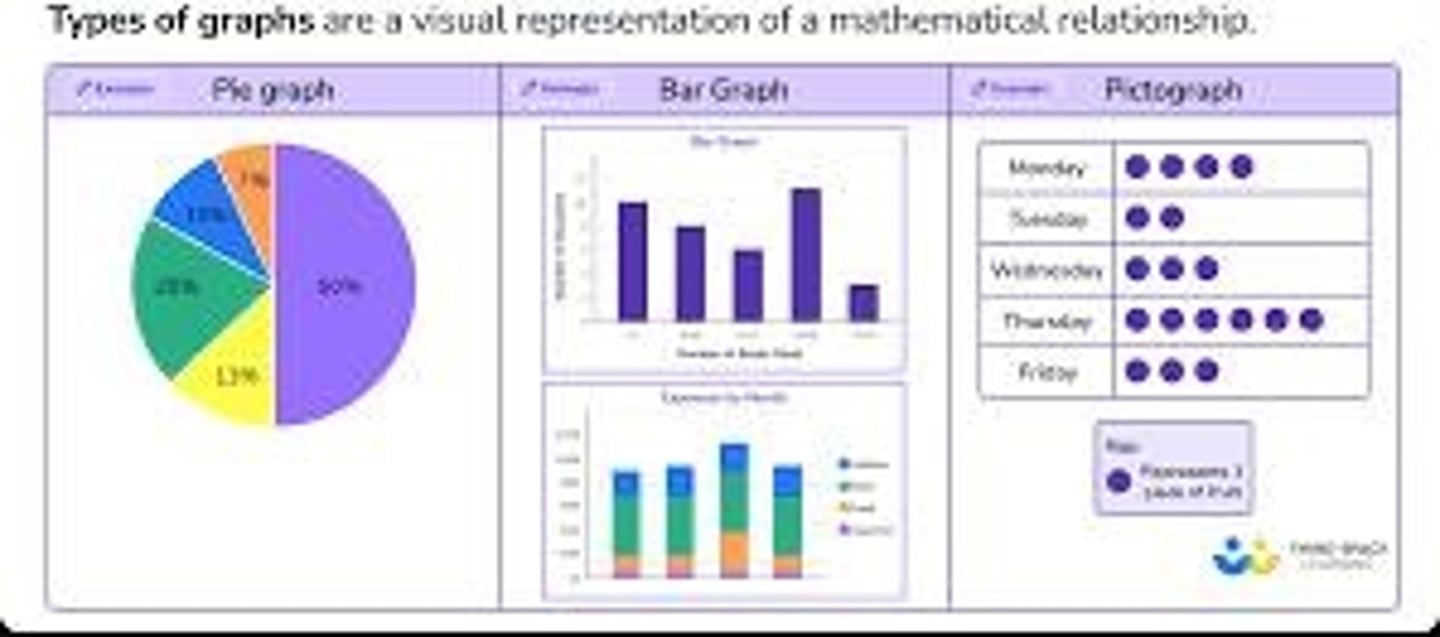
What is the purpose of the class discussion after the Biology Concept Map activity?
To reflect on what worked well and what challenges were faced during the activity.
What should students include in their concept map connections?
An action word or phrase that describes how the two topics are connected.
What is one of the reminders for the week regarding reading?
Reading for this week includes Chapter 1 and an excerpt from Vision and Change.
What is the expected outcome of using concept maps for studying?
They can help organize understanding and prepare for quizzes and exams.
What is the focus of the 'Organizing Your Semester' section?
To discuss how to keep track of assignments and due dates.
What should students do if they need accommodations for the course?
Discuss accommodations with the SAS office.
What is the first step in the 'Organizing Data: Graphs and Charts' activity?
Work together in groups to remember key variables on the axes of a graph.
What are students encouraged to do with their calendars?
To schedule their final exam and midterms.
What is the importance of discussing changes in study habits?
To reflect on past experiences and improve academic performance.
What is a key takeaway from the concept map activity?
Biology topics are interconnected and understanding these connections enhances learning.
What is the format for submitting the concept map drawing?
Take a picture of the work and submit it as part of the Week 1 In-Class Work assignment.
What is the definition of evolution?
Heritable change in one or more characteristics of a population from one generation to the next.
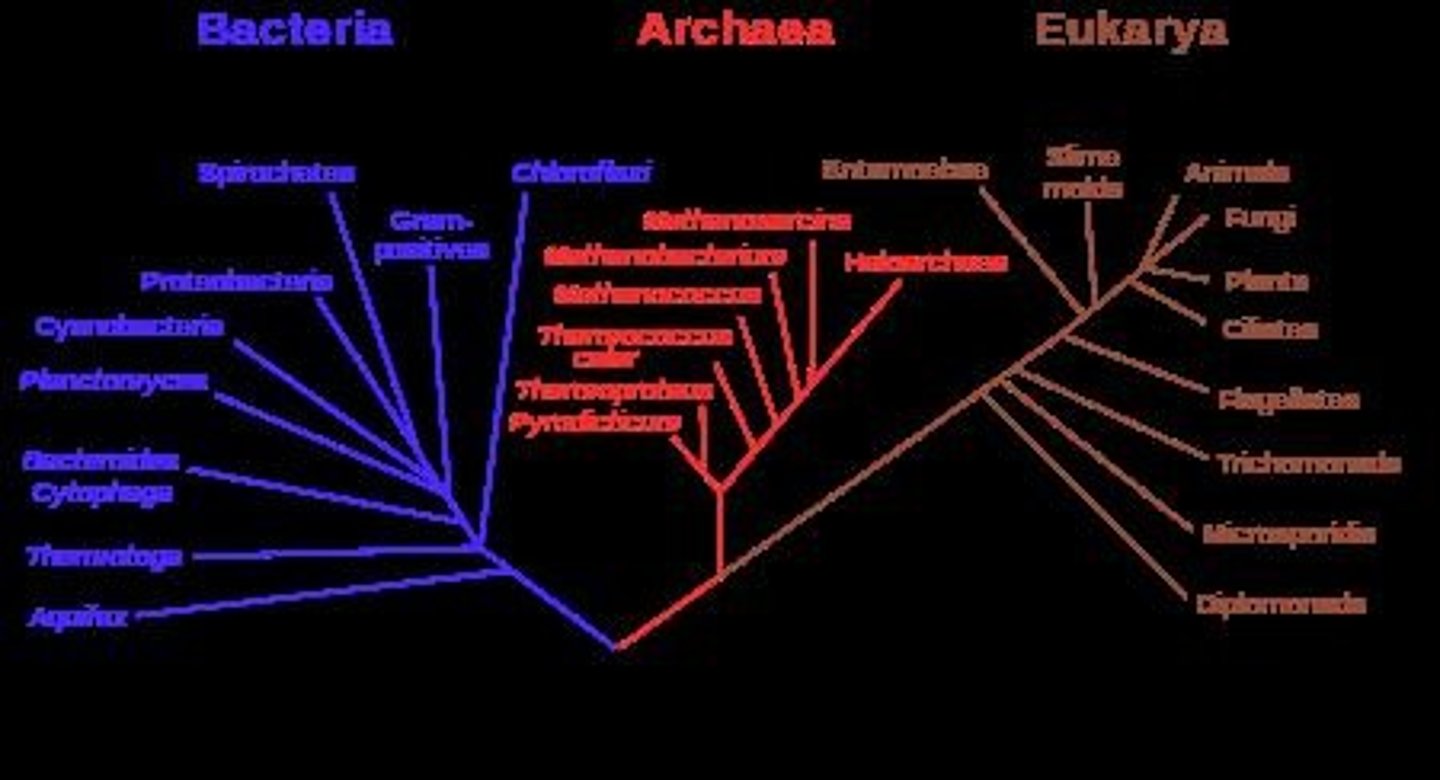
What is the difference between microevolution and macroevolution?
Microevolution refers to changes within a single gene or among populations within a species, while macroevolution involves the formation of new species and diversification across the tree of life.
What is a common misconception about evolution?
A common misconception is that evolution is intentional or purposeful.
What does 'survival of the fittest' actually mean in the context of evolution?
'Survival of the fit enough' to reproduce and pass their genes on to the next generation.
What are heritable traits?
Traits that can be passed from one generation to the next and are subject to change through evolution.
What is the significance of trait variation in evolution?
Variation in traits is essential for natural selection to occur, as it provides the raw material for evolutionary change.
What is natural selection?
The process through which populations evolve, where individuals with favorable traits are more likely to survive and reproduce.
What must be met for a population to evolve by natural selection?
There must be variation in traits, heritable traits, and differential survival and reproduction based on those traits.
What is the role of misconceptions in understanding evolution?
Misconceptions can hinder comprehension of evolutionary processes and lead to misunderstandings about how evolution works.
What is the relationship between populations and species in evolution?
A species is a group of organisms that can interbreed, while a population is a localized group of individuals of the same species.
What is an example of a misconception regarding adaptations?
The belief that new adaptations arise when a species needs them is false; adaptations arise through random mutations and natural selection.
How does evolution act on populations?
Evolution acts on populations rather than individuals, as it is the population that changes over generations.
What is the importance of understanding the timeline of evolution?
Understanding the timeline helps clarify how species have changed over time and the processes that drive these changes.
What is a key feature of evolution?
Evolution is about change through time, specifically changes in traits or characteristics across generations.
What is the impact of antibiotic resistance on the understanding of evolution?
Antibiotic resistance in bacteria is a contemporary example of evolution in action, demonstrating microevolution through natural selection.
What is a common method used to evaluate understanding of evolution in class?
Concept checks and polls are often used to assess students' understanding of evolutionary concepts and misconceptions.
What is the significance of the phrase 'boost your evolution IQ'?
It encourages students to engage with and deepen their understanding of evolutionary concepts.
What are the key components of the agenda for the evolution class?
The agenda includes check-ins, announcements, an introduction to the unit on evolution, interactive lectures, and discussions on antibiotic resistance.
What is the purpose of the reflection pause in the class?
To encourage students to think critically about their pre-existing notions and misconceptions regarding evolution.
What is the role of heritable traits in natural selection?
Heritable traits are essential for natural selection as they determine which traits can be passed on to future generations.
